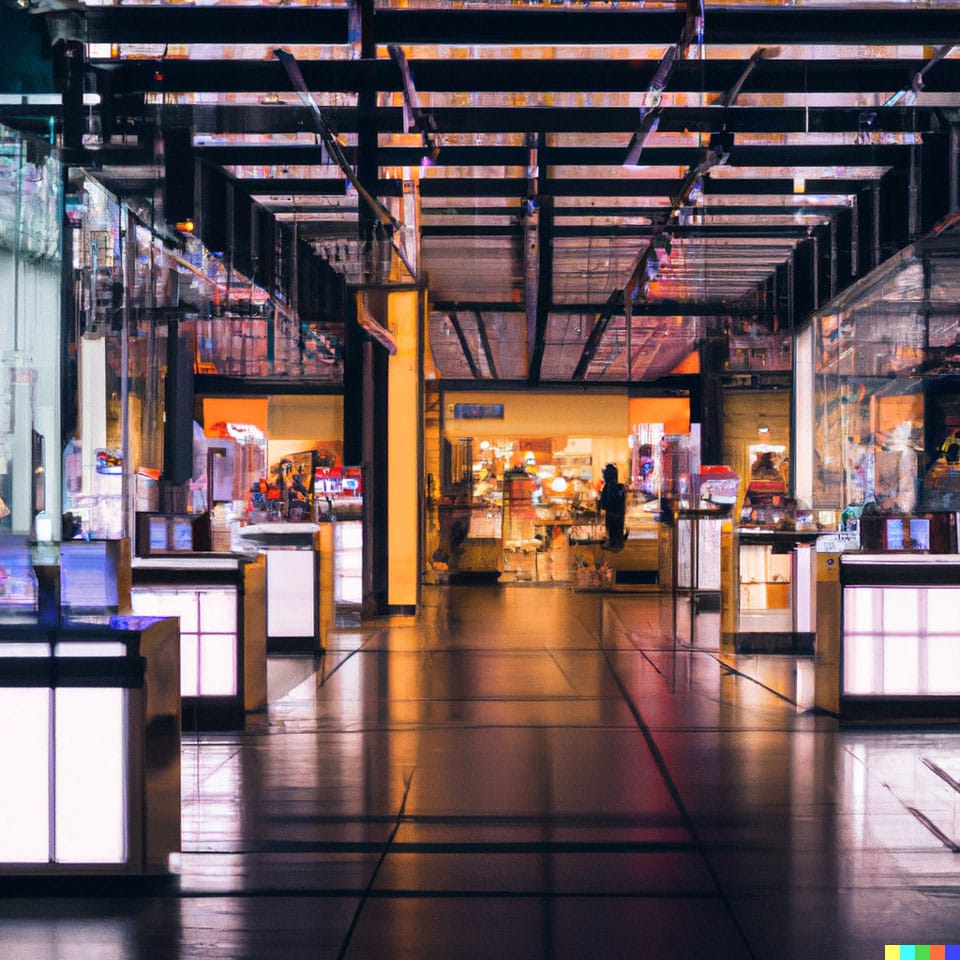
What is the impact of artificial intelligence (AI), especially in its generative component, on Retail? How will this exponential technology transform the way we sell stuff, offline and online?
We just witnessed the launch of Sora, by Open AI, and the entire AI arena is changing extremely fast, every single day. It goes without saying that commerce will be impacted and augmented by AI, for good and forever. Should we call it Ret-AI-l?
Here are 7 areas where we will see AI revolutionize the way we sell anything, be it a piano, underwear or a table for two at Alain Ducasse’s Jules Verne in Paris.
- Personalized shopping experience, for real! AI will easily help retailers analyze customer preferences and behaviors, enabling personalized product recommendations, targeted promotions, and customized shopping experiences. We do that already, you would say. Yes, mainly via segments or personas, which have been created according to common features across a certain cohort of people, who share similar socio-demo features. AI can make us customize our offering ad personam, based on their individual history, characteristics, and preferences. It’s almost like as if we knew every single fan of our brand.
- Inventory management, with virtually zero mistakes: AI optimizes inventory levels by predicting demand, reducing overstock or stockouts, and minimizing costs. This ensures that retailers have the right products available at the right time. This creates efficiencies in the retailer’s P&L, and it’s also more sustainable, as we use fewer resources to make the stuff that we sell. Inventory is the biggest problem of industries like fashion, for example, which is one of the largest offenders of the planet, when it comes to pollution, before, during and after production. Most garments go unsold and finish their long global journey in a dump. It’s time to bring some science in this mess.
- Your chatbots or having your virtual concierge 24/7: AI-powered chatbots enhance customer service by providing instant assistance, answering queries, and guiding users through the purchasing process, improving overall customer satisfaction. They are active and fully functioning 24/7, and they can react and serve you, according to your own background and history with the brand. A mother of four kids may have time to buy and engage with the brand only early in the morning or late at night. AI will be there, to assit and solve their problems, better than any human could do.
- Dynamic pricing, or, better said, effective promotions: this is another area of massive efficiencies for any retailer. Most promotions, for example, are extremely inefficient, as they don’t consider the elasticity and buying propensity of every individual shopper. AI algorithms analyze market trends, competitor pricing, and consumer behavior to dynamically adjust prices. This enables retailers to stay competitive, maximize profits, and respond to market fluctuations. We already use dynamic pricing for travel and accommodation offerings. There are key industries where we should introduce this new scheme, from financial services to mobility to energy. We are not advocating for speculation on pricing, but on higher efficiencies in giving promoted pricing to the right individuals, based on their needs and history. You want to promote your stuff with a BOGOFF and hit the right people on their head? Now you can.
- Fraud detection and security for all: AI enhances security measures by detecting suspicious activities and patterns, helping prevent fraud in online and off-line transactions and safeguarding sensitive customer information. In a world that will become cookie-less, protecting your data is fundamental. AI allows you to crawl and process all transactions and interactions on the brand’s properties, highlighting risks and situations where interventions are necessary. Data is the new gold. Watch it, carefully.
- Supply chain optimization, to be there, always on time: AI improves supply chain efficiency through predictive analytics, forecasting demand, optimizing routes, and managing logistics, leading to reduced costs and faster delivery times. In a world that moves faster and faster, you want to be at the right place, at the right time. A smart supply chain becomes a hygiene factor. Now you can, as AI will help you allocate scarce resources around your manufacturing and logistics network. Don’t be silly. You need help here.
- Supplier risk management, as everyone needs a Plan B: AI assists retailers in evaluating and managing risks associated with all suppliers, ensuring a stable and reliable supply chain, and minimizing disruptions in the procurement process. You probably have a roster of suppliers, and the way they are being managed can be optimized, with reaction times accelerated and augmented, if AI runs the show. Speed dating may be physically intensive for a human. AI can help. Build your plan A, B and C. Disruptions happen more regularly than you may think or like.
The name of the game if efficiency and speed, minimizing risks and frauds. Retail has been heavily impacted by the Covid-19 era and its effects, which are still ongoing. AI can help free resources, which are better spent to engage employees and fans. Let the machine do what they are best at: repetitive, lower value work. Focus on the ‘wow’ on the shopping floor, online and offline, and you will flourish. Ret-AI-l is the augmented version of the old-world Retail.
What are your thoughts on where AI will change Retail forever?
Written by Francesco Pagano.
Have you read?
These Are The Most Secular Countries in the World, 2024.
Countries that Follow Sharia Law, 2024.
Religious Landscape: An Overview of Religion by Country, 2024.
Report: Countries with the Highest Teenage Pregnancy Rates, 2024.
Revealed: These Are The Countries with the Highest Rate of Diabetes, 2024.
Add CEOWORLD magazine to your Google News feed.
Follow CEOWORLD magazine headlines on: Google News, LinkedIn, Twitter, and Facebook.
Thank you for supporting our journalism. Subscribe here.
For media queries, please contact: [email protected]
